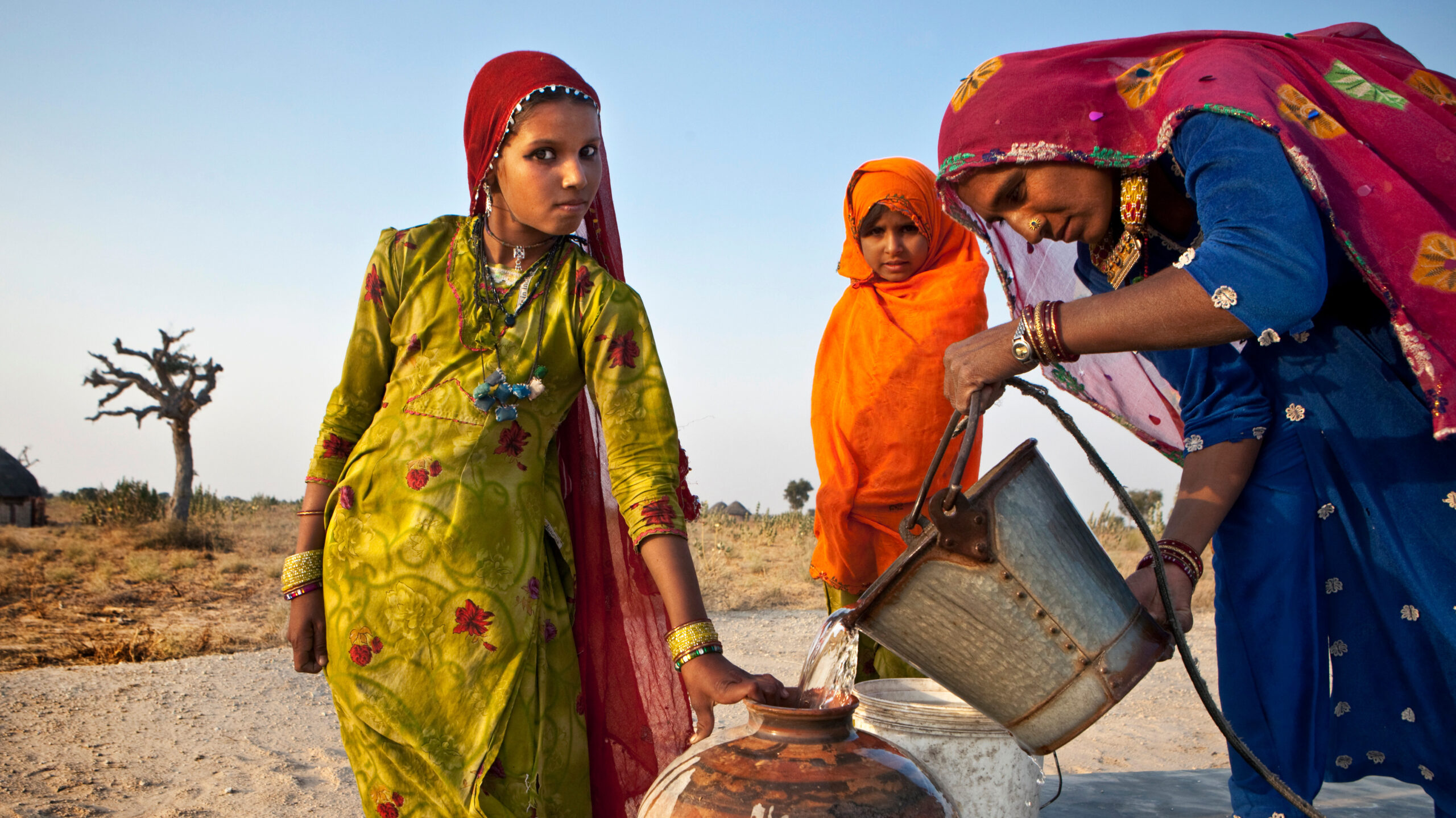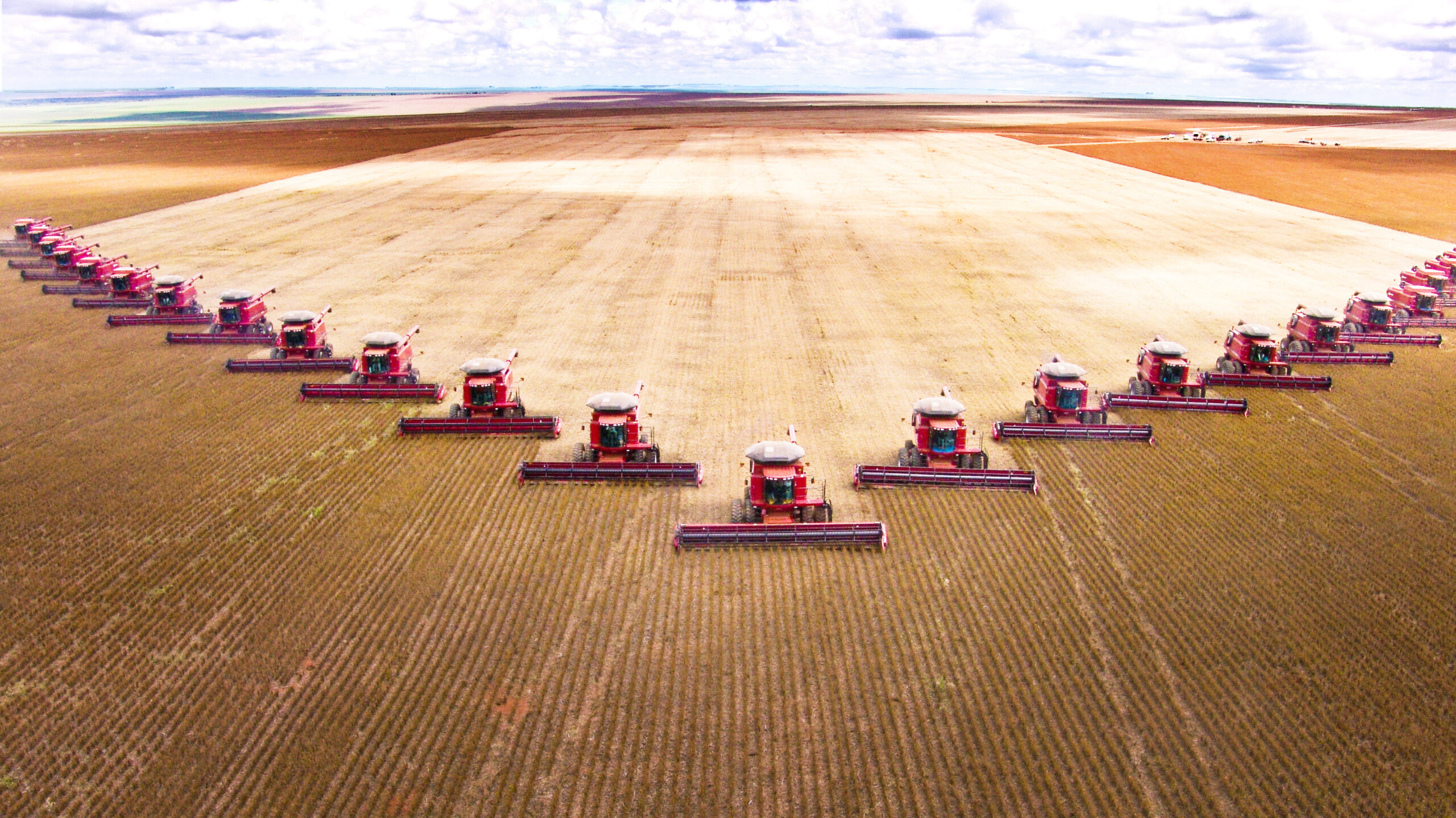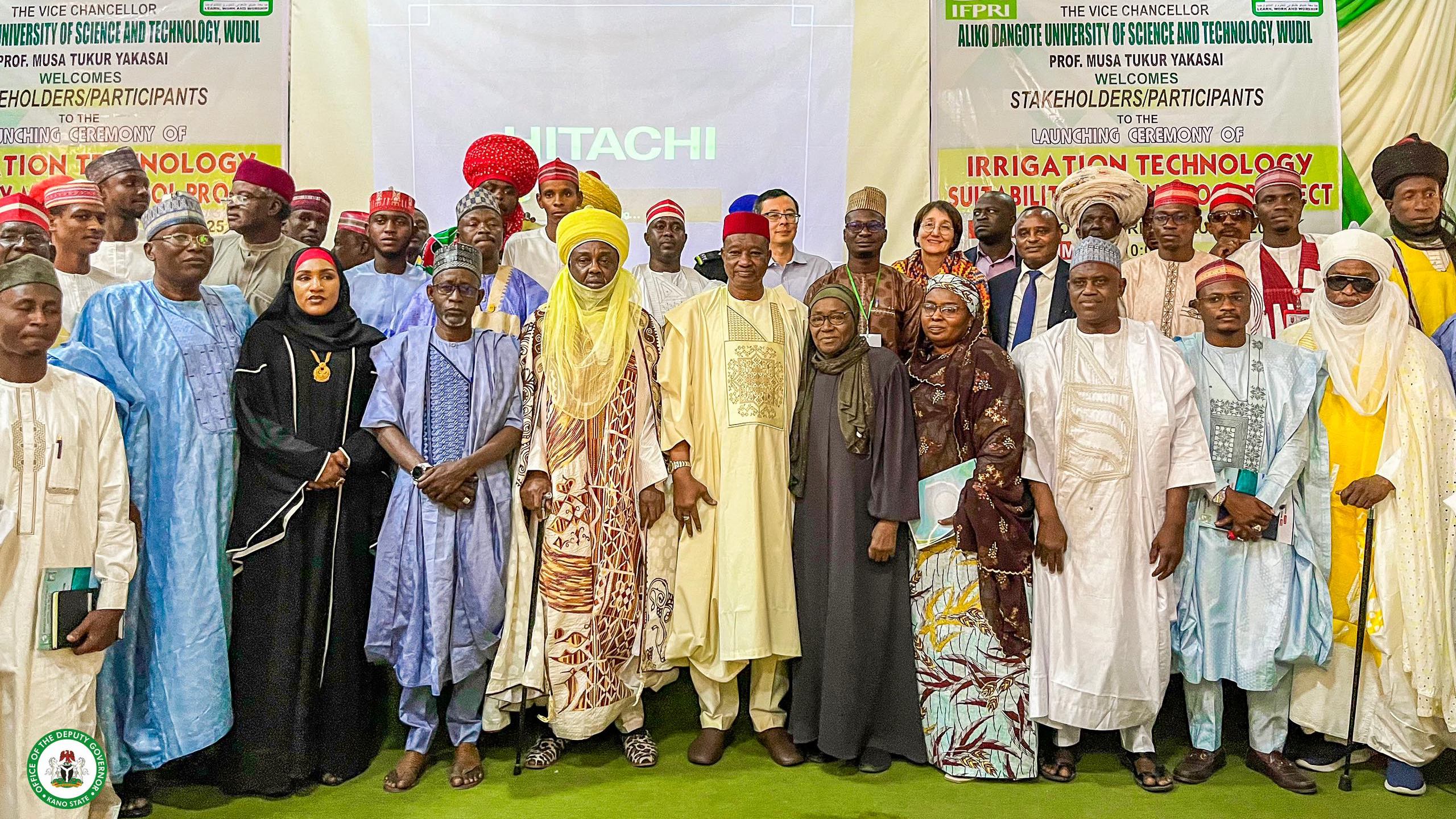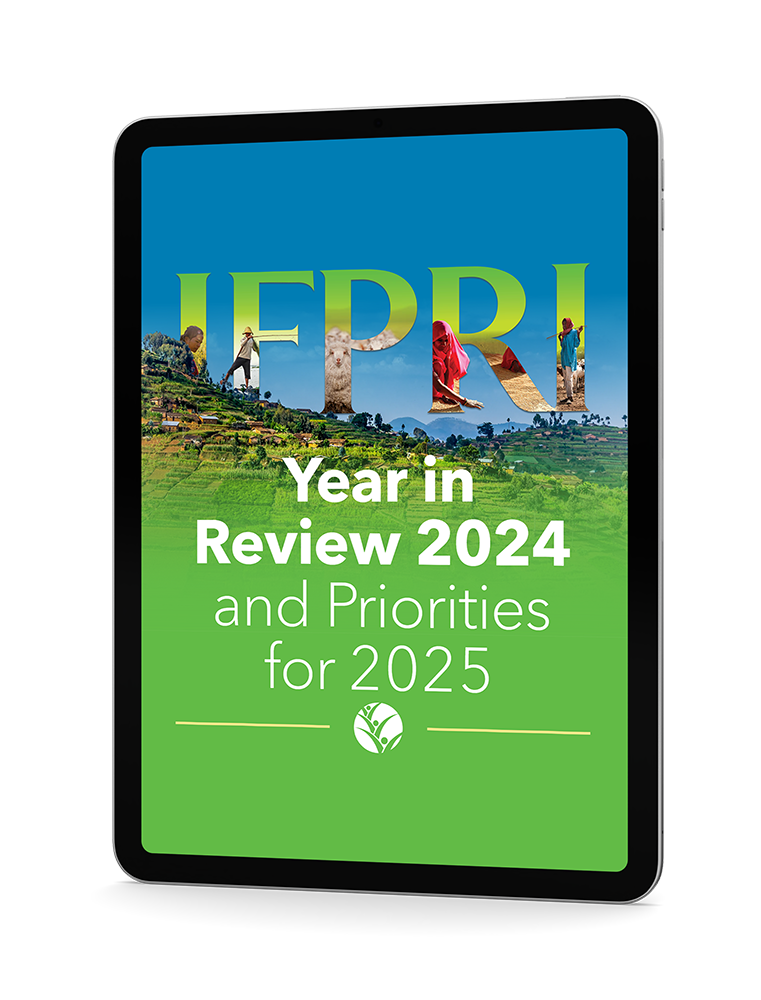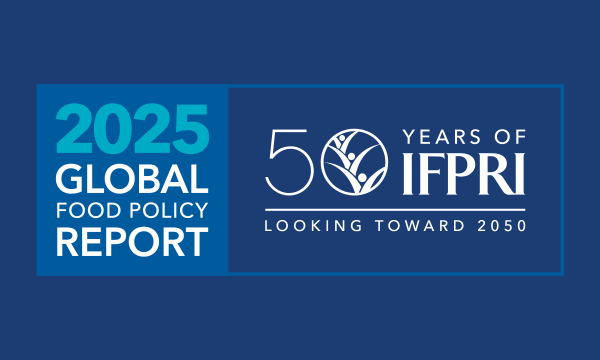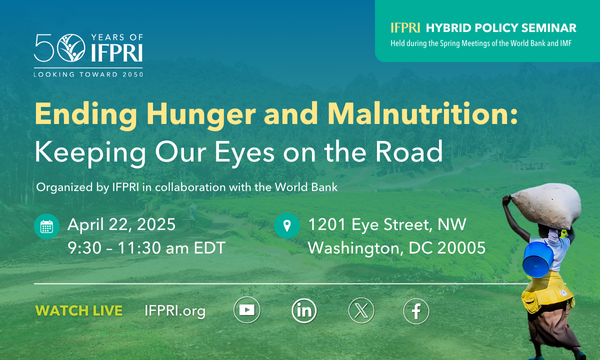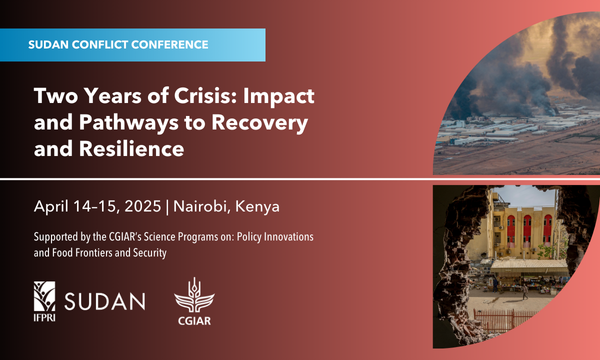What’s New
-
IFPRI’s Wei Zhang appointed to the prestigious NASEM ad-hoc study committee on the status of insects in North America
IFPRI’s Wei Zhang will participate in the NASEM study that will assess trends in insect abundance, identify research priorities, and recommend actions to slow insect declines in the most vulnerable…
-
Steven Were Omamo appointed IFPRI’s Director for Africa
The International Food Policy Research Institute (IFPRI) is pleased to announce that Steven Were Omamo has been appointed IFPRI’s Director for Africa. Dr. Omamo will also continue to serve as…
-
New study challenges the use of Growth Monitoring and Promotion to detect growth faltering in children
A new study published in Advances in Nutrition critically examines the effectiveness of Growth Monitoring and Promotion (GMP) in diagnosing or screening for inadequate growth in children.
Featured Publications
Journal Article
Dairy trade liberalization and child stunting: Evidence from low- and middle-income countries
2024Liu, Xinghua; Liang, Yue; Chen, Kevin Z.Journal Article
The costs of a multisectoral nutrition program implemented through a poultry value chain platform in Burkina Faso
2025Margolies, Amy; Pedehombga, Abdoulaye; Twalibu, Aisha; Nwabuikwu, Odiche; Wun, Jolene; Kemp, Chris; Gelli, Aulo; Levin, CarolJournal Article
Assessing progress on the coverage of interventions in the first 1000 days in India: Role of national programs
2024…more
Chakrabarti, Suman; Singh, Shri Kant; Menon, Purnima
2024 Year in Review
Explore highlights from IFPRI’s 2024 research and outreach, including our work on food security and healthy diets, responding to conflicts and building resilience, and major outputs from our regional and country programs. Click through the interactive review to view videos, blogs, events and more.
IFPRI and CGIAR
IFPRI is a Research Center of CGIAR, the world’s largest global agricultural innovation network. IFPRI researchers collaborate closely with researchers from other CGIAR Centers, and our work contributes to the CGIAR mission of delivering science and innovation that advance the transformation of food, land, and water systems in a climate crisis.

Experts in Our Field
IFPRI’s experts work around the world to provide the evidence that supports effective policies to sustainably reduce poverty and end hunger and malnutrition.
600+
staff across the world
80+
countries where we work
#1
in the field of Agricultural Economics
20,000+
research outputs
Meet a Researcher
Avinash Kishore is a Senior Research Fellow in the Development Strategies and Governance Unit, based in IFPRI’s South Asia Office in New Delhi. His research focuses on understanding how public policies and markets affect the adoption and non-adoption of sustainable technologies and practices in agriculture in South Asia. He leads research projects on understanding food systems in Bangladesh, India, and Nepal and the policy research component of the Cereals Systems Initiative for South Asia (CSISA)—a program implemented jointly by CIMMYT,…

From our video channel
Faces of IFPRI: Agnes Quisumbing
This video features Agnes Quisumbing, Senior Research Fellow. Agnes reflects on 30 years of policy research based on extensive fieldwork in Asia and Africa, the importance of working together to solve tough problems, and of learning from women and men’s lived experiences. She also shares her favorite IFPRI memory, and what keeps her passionate about her work.
“Faces of IFPRI” is a new series of interviews with IFPRI colleagues around the world, showcasing the diversity of talent, geographies, and research interests across the Institute.
Our Events

Making a Difference Blog Series
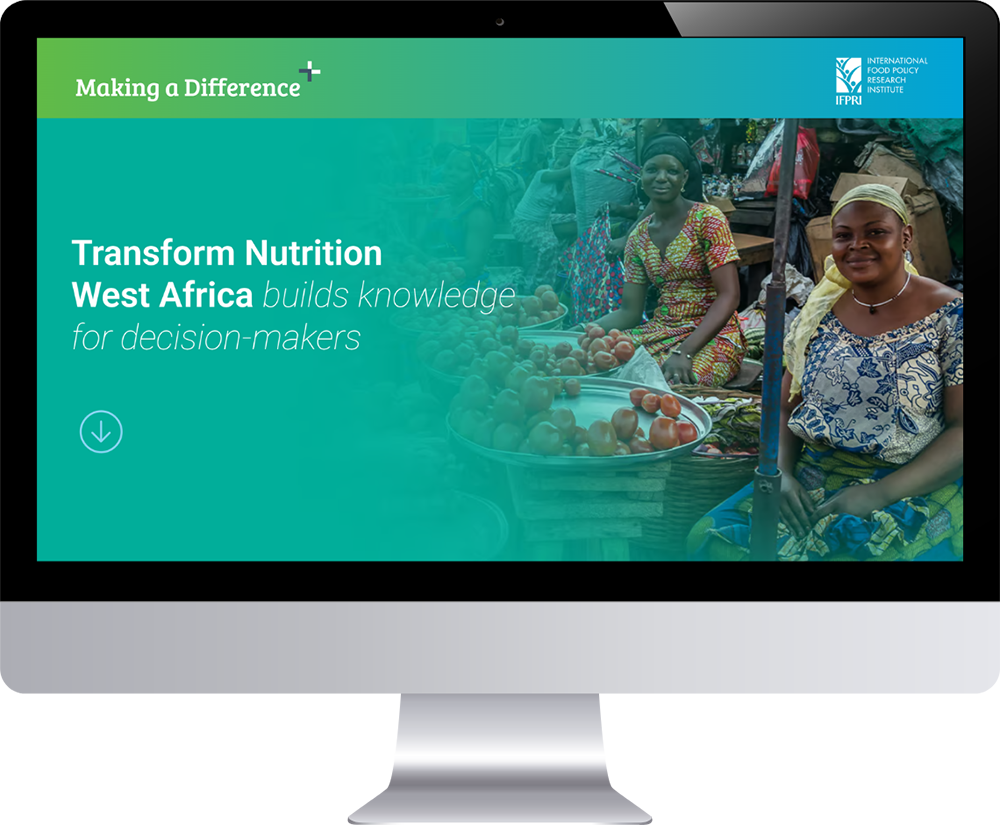
West Africa faces significant problems with various forms of malnutrition, especially among women and children. In 2017, the region had the highest rate of under-five wasting (low weight-for-age) in Africa—8.5% compared with the continent’s mean of 7.4%. The rate of stunting (low height-for-age) waw also extremely high at 31.4%. In 2017, 52% of women ages 15-46 suffered from anemia.
In response, IFPRI, with funding from the Gates Foundation, established Transform Nutrition West Africa (TNWA)—a regional knowledge platform to facilitate effective policy and action on maternal, infant, and young child nutrition in West Africa with a focus on four countries: Burkina Faso, Ghana, Nigeria, and Senegal. TNWA ran from 2017 to 2021.
Tamsin Zandstra, Roos Verstraeten, Ampa Dogui Diatta, Loty Diop, and Mariama Touré explore TNWA’s research, work, and long-term impact in West Africa.





